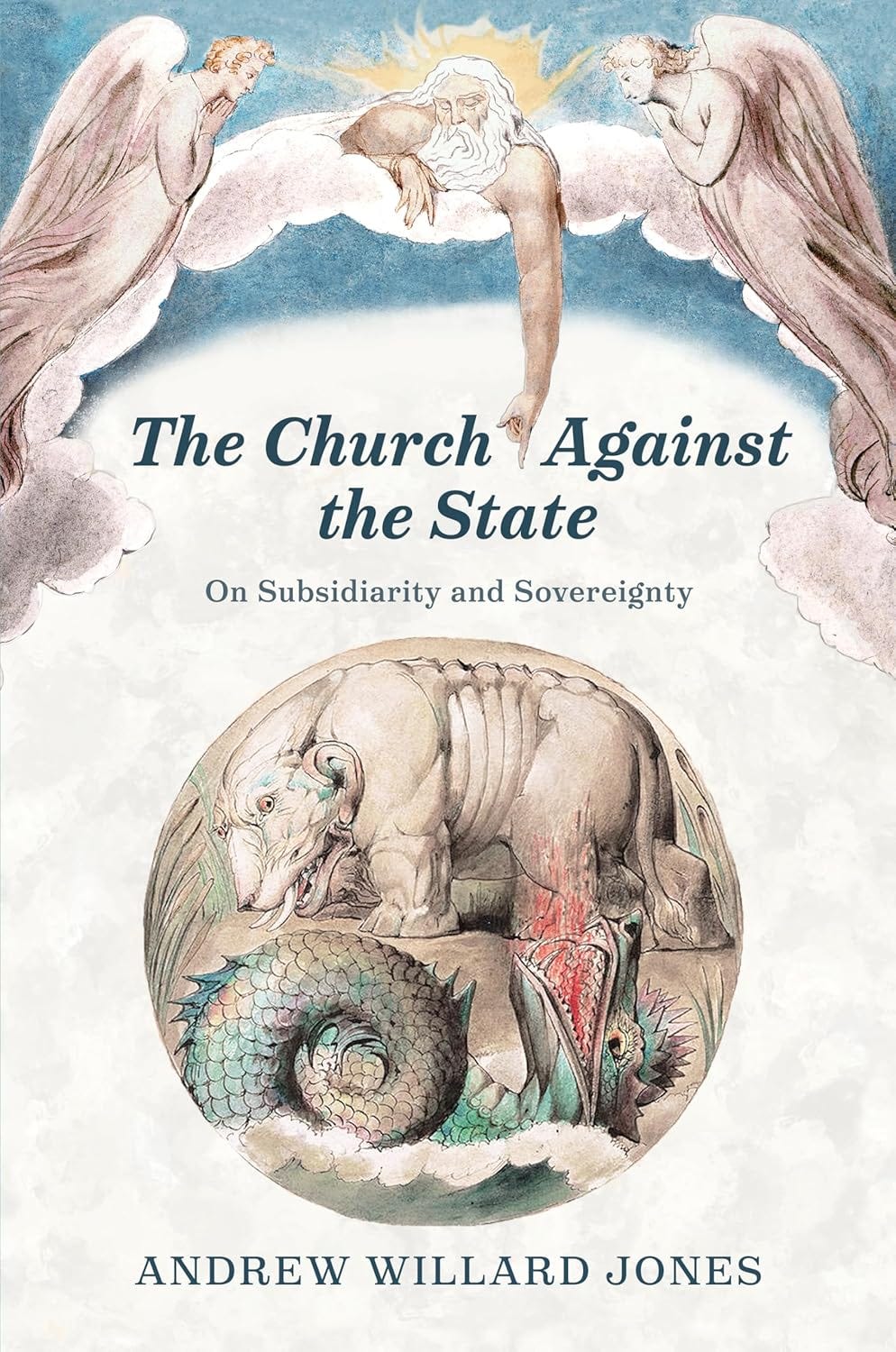Liberalism All the Way Down
Today my review of Andrew Willard Jones’s The Church Against the State: On Subsidiarity and Sovereignty, “Liberalism All the Way Down”, was published at Religion & Liberty Online.
The book’s positive account of Catholic Social Teaching is, at points, quite good, but its failure to engage substantively with the liberal tradition it critiques was disappointing:
Particularly curious is the fact that, though Hayek is mentioned several times throughout the book, only his The Road to Serfdom is cited, a book written for a popular audience to address contemporary political and economic debates as the Second World War was coming to an end. Hayek’s later academic works on law and political theory, The Constitution of Liberty (1960) and Law, Legislation, and Liberty (1973–79), are not considered at all.
This was disappointing, as Hayek’s intellectual contributions, such as spontaneous order, dispersed knowledge, and his critique of scientism, all resonate with the Church’s teachings on subsidiarity and the common good—which Jones forcefully defends. Hayek himself was also an observant critic of certain strands of the liberal tradition.
For example, in his essay “Individualism: True and False,” Hayek contrasts two strands of liberalism, one congenial to human flourishing and the other an obstacle to it. False liberalism arises primarily for liberal thinkers on the European continent, and is rationalistic, atomistic, contemptuous of traditions and institutions, and ultimately hostile to human freedom. True liberalism is organic, social, deferential to traditions and institutions, and secures freedom necessary for all to contribute to the common good. It is precisely the sort of distinction that Jones himself makes in distinguishing the false statist, pro-sovereignty postliberals from the true postliberals, who embrace subsidiarity and the common good as their lodestars.
Full review available here. Enjoy!



Thanks, Dan. Just about to start this book. It's sitting next to my reading chair.